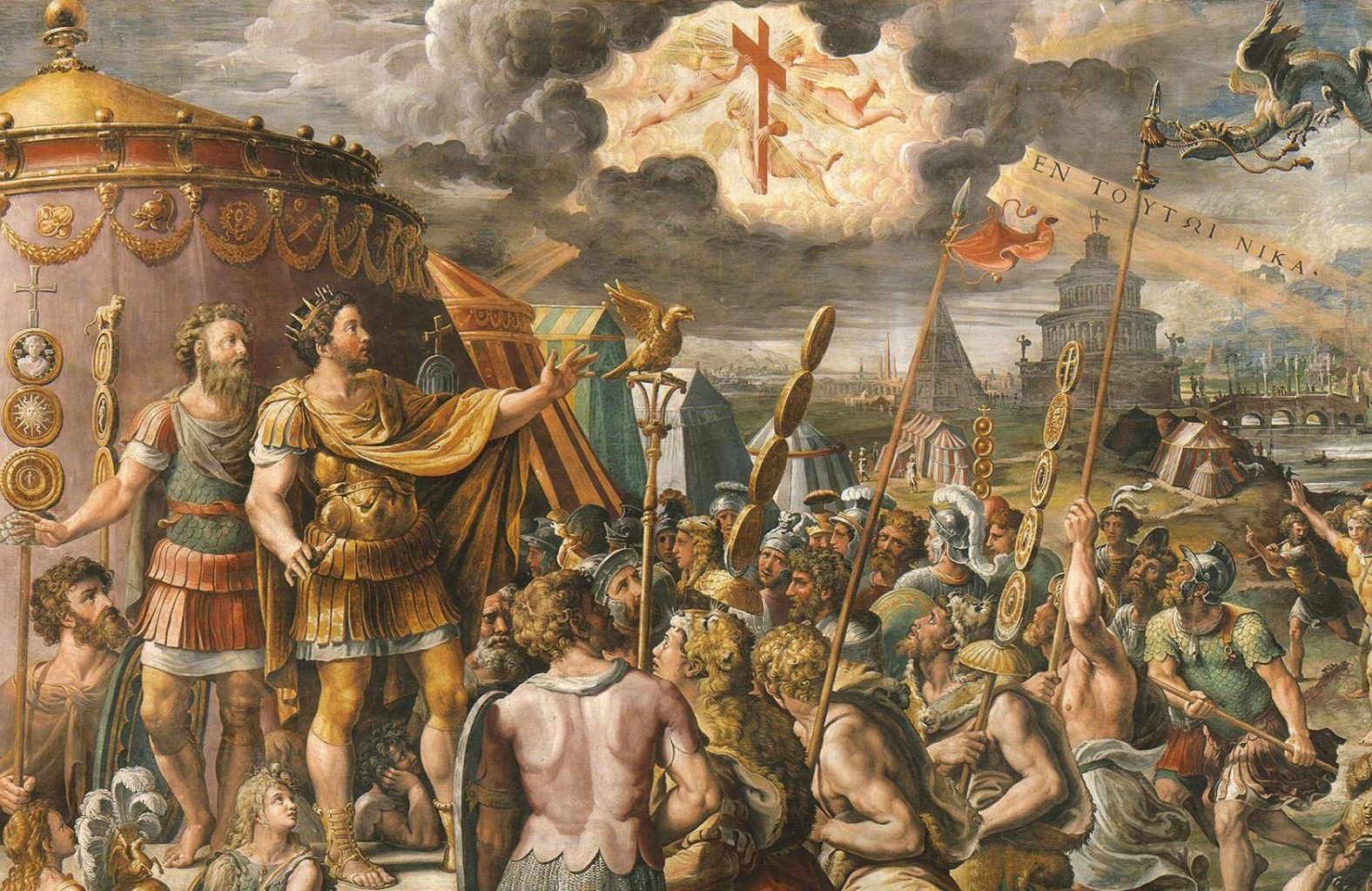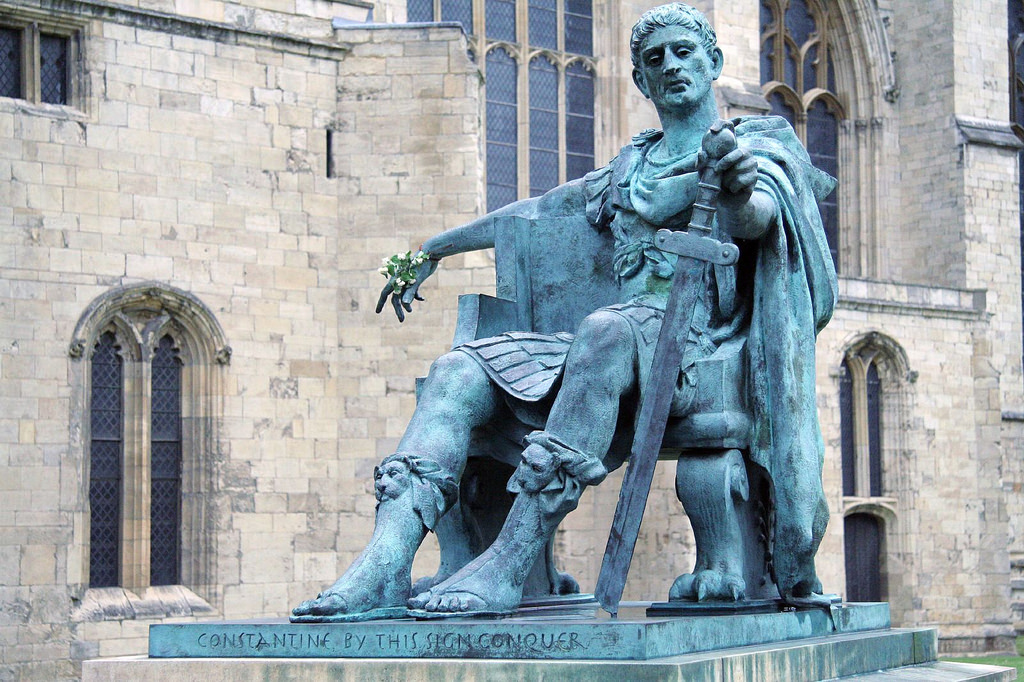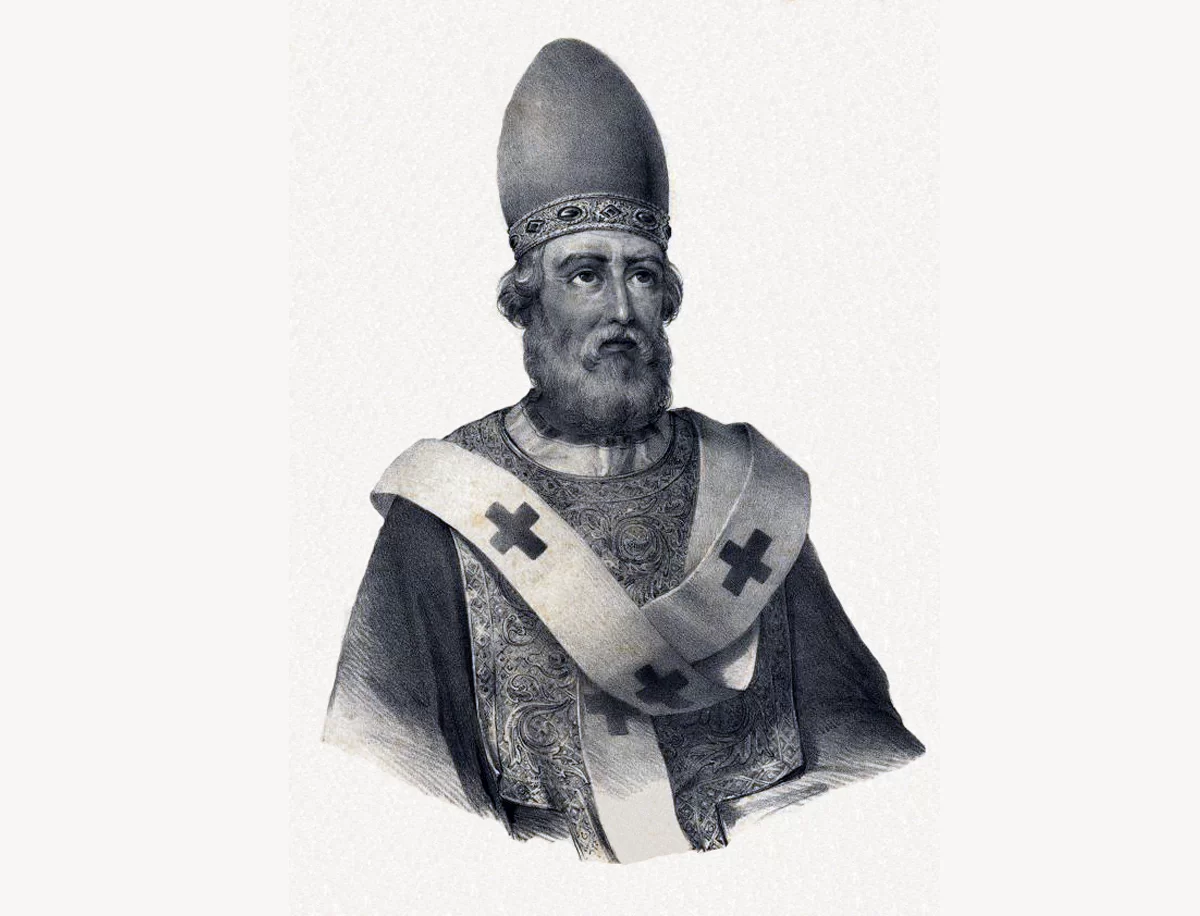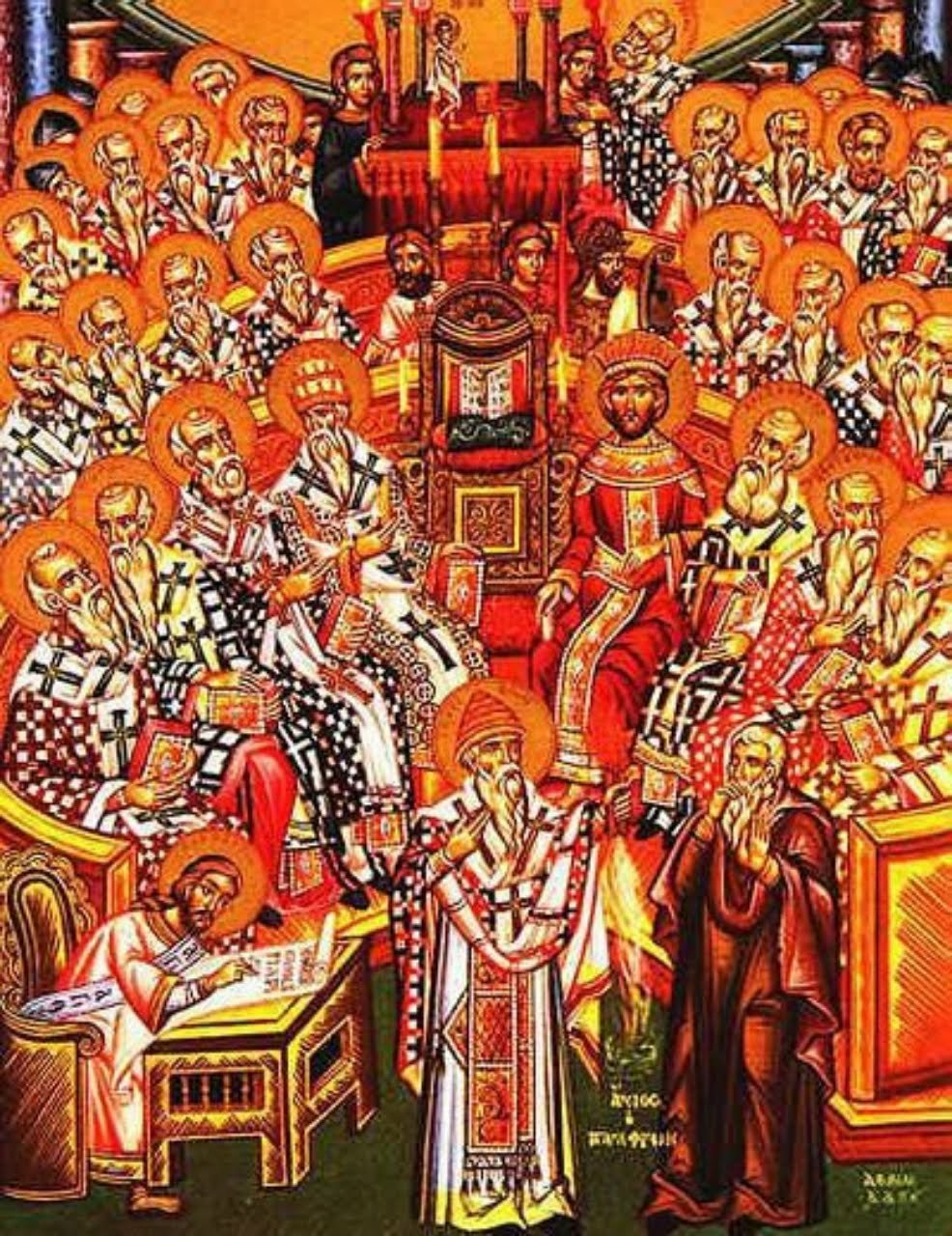Did Emperor Constantine create the Bible?
Constantine the Great was a Roman emperor from the year 306 to the year 337.

Appearance of the Cross to Constantine the Great before the battle of Ponte Milvio, by G. Romano - Image Source
He entered history as the first Roman emperor to profess Christianity, which occurred after his victory over Maxentius at the Battle of the Milvian Bridge on October 28, 312, near Rome, a success that he attributed to the Christian God. According to tradition, the night before the battle, he dreamed of a cross, and on it was written in Latin: "In hoc signo vices" ("By this sign, conquer").
With his conversion, the time of martyrdom and persecution against Christians ended, and the Church of the Catacombs became the Church of the Empire. The first significant effect of Constantine's vision was the so-called "Edict" of Milan, which he and his fellow Emperor Licinius issued in 313, proclaiming official tolerance of the Christian faith.

Statue of Roman Emperor Constantine the Great outside of York Minster, England - Image Source
The idea that Constantine created the Canon of the Bible during the Council of Nicaea is not supported by primary sources or reliable historical evidence. Claims that emerged later in the 18th century are based on a satirical anecdote from the 9th century and have been refuted by subsequent historians. Defining the Canon of the Bible involved later councils and was not the central focus of the Council of Nicaea.
So, no, Constantine did not formulate the Bible. This erroneous idea that Constantine created the Canon of the Bible during the Council of Nicaea in the year 325 originates with the "philosopher" and critic of Christianity, Voltaire, in the 18th century, being one of the first to raise it. Voltaire used a ninth-century satirical anecdote to support this claim, suggesting that the bishops at the Council of Nicaea chose the books of the Bible through prayer and lot. Today, it is known that Voltaire invented all types of narratives to support his points of view.
The oldest list of the canon of Holy Scripture that we know of is the list of Pope Damasus in the 4th century (Decretum Damasi).

Lithograph of Pope Saint Damasus I, 1840, National Library of Portugal - Image Source
The formation of the New Testament books list did not happen smoothly, quickly, and consensually, as is mistakenly imagined. It was up to the Catholic Church, represented by the apostolic authority of the bishops and supported by tradition, the mission of discerning the subject and listing, after a consensus on the part of the entire Catholic world, the books that should be present in the canon of the Holy Scriptures. , namely, those texts considered to be directly inspired by God.
Before the formation of the biblical canon, the first Christians spent centuries living solely on tradition. The oldest book in the New Testament, the First Letter of Saint Paul to the Thessalonians, was written almost 20 years after the ascension of Jesus. In contrast, the most recent, the book of Revelation, was written around the year 90.

Orthodox icon representing the First Council of Nicaea - Image Source
For centuries, the Church had to deal with different groups who, on the one hand, defended the inclusion of these various apocryphal books in the biblical canon — as was the case with the Gnostics — and, on the other, wanted the exclusion of several sacred books, recognizing them as valid only the Gospel of Luke and some Pauline letters — as in the case of the Marcionites, disciples of the heretic Marcion.
Furthermore, these books were not collected on a single scroll but scattered throughout various regions, so the early Church did not have a New Testament as we know it. The first Christians, luminaries of holiness, lived absolutely from tradition, from the Word of God incarnate, not from a book, as Protestantism supposes.
Bibliography; The Church of Apostles and Martyrs (The History of the Church of Christ) by Henri Daniel-Rops

Follow me on Twitter
Obrigado por promover a comunidade Hive-BR em suas postagens.
Vamos seguir fortalecendo a Hive
The notion that Emperor Constantine created the Bible during the Council of Nicaea is not supported by primary sources or reliable historical evidence. While Constantine played a significant role in the history of Christianity and officially tolerated the Christian faith with the Edict of Milan in 313, the formation of the biblical canon happened through a more extended and consensual process.
Claims suggesting that Constantine formulated the Bible during the Council of Nicaea can be traced back to the 18th-century philosopher Voltaire, who used a satirical anecdote from the 9th century to support this idea. However, subsequent historians have refuted these claims.
The earliest known list of the canon of Holy Scripture is attributed to Pope Damasus in the 4th century. The formation of the New Testament books list did not happen quickly or smoothly. The Catholic Church, represented by the apostolic authority of bishops and supported by tradition, had the responsibility of discerning and listing the books considered directly inspired by God. This process involved consensus among the entire Catholic world.
Before the formation of the biblical canon, early Christians relied on tradition. The books of the New Testament were written over several decades, with the oldest, the First Letter of Saint Paul to the Thessalonians, composed almost 20 years after the ascension of Jesus, and the most recent, the book of Revelation, written around the year 90.
The Church had to navigate different groups advocating for inclusion or exclusion of various books in the biblical canon. Some groups, like the Gnostics, supported apocryphal books, while others, like the Marcionites, recognized only specific texts.
In conclusion, the formation of the biblical canon was a complex process that took place over centuries and involved the discernment and consensus of the Catholic Church, not a creation by Emperor Constantine during the Council of Nicaea.